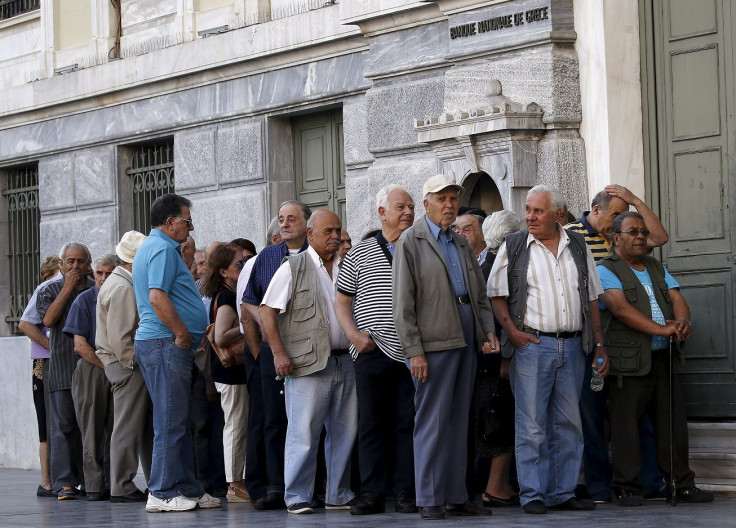Greece Agrees To Implement Pension And Tax Reforms To Secure Bail Out Deal For Three Years: Brussels To Oblige Reluctantly

Greece's last ditch attempt to secure a bail out deal is out with its new proposals, already forwarded to the European Union leaders. Now its parliament will ratify it after European Union headquarters in Brussels reluctantly conceded the need for a debt relief to prop up the nearly bankrupt nation. Yet Germany is miffed and has rift with the rest of Europe over size of the debt relief for stitching the three-year bail-out deal.
European Union President Jean-Claude Juncker's chief of staff tweeted that Athens has sent a signed list of reforms for the consideration of the creditor institutions. Some of the Greek proposals are looking harsher than the previous austerity deal and shows its urgency to clinch a deal at the earliest.
Main Proposals
The highlights of the fresh proposals from Greece pertain to the following areas.
The Greek government agreed to hit the prescribed targets of budget surplus at the rate of one percent, 2 percent, 3 percent and 3.5 percent from 2015-2018. This has been proposed by EU but are still ambitious, particularly since economic activity has deteriorated by virtue of capital controls and paralysed banking system. Greece is now ready to abolish VAT exemptions for Greek islands. Accordingly, 30 percent discounted rate will be retained as required by creditors and which was fiercely resisted by the Greek government earlier. The proposals bind "islands with the highest incomes and which are the most popular tourist destinations" first.
The hotels will remain in lower 13 percent bracket but restaurants will be hit hard by the 23 percent bracket. Books, medicines and theatres will remain at reduced 6 percent rate. Greek farmers will face the axe of abolished fuel subsidies. These VAT measures will be reviewed before the end of 2016, if "additional revenues are collected through tax evasion" and other improved collection measures result in higher tax income.
Greece also agreed to hike income tax in case of fiscal shortfalls. The hikes on income tax will also hit the poorest earners. This would see incomes below €12,000 taxed at 15 percent and above it at the rtae of 35 percent and Corporation tax would become 29 percent.
The major breakthrough seems to be in the dilution of Greek stand over pensions by agreeing to phase out supplementary pensions for the poorest by Dec 2019. The government will also hike the basic pensions retirement age to 67. The government will also annul previous court rulings, which deemed the 40pc cut in pensions as unconstitutional. Also defence spending will be slashed by €100 million in 2015 and €200 million in 2016.
Relief Volume
The International Monetary Fund estimates that Athens would need at least $55 billion as a major relief to mitigate its massive public-debt to keep going for the next three years. Businesses are the hardest hit by the ongoing banks closure. Says Christos Kapatos, head of R&D in HCi Viocare, which is into biomedicals, “suppliers will not grant any credit and demand payment in cash. They don’t trust anything Greek. It’s absolutely crazy.”
(For feedback/comments, contact the writer at k.kumar@ibtimes.com.au)




















